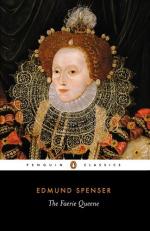|
This section contains 839 words (approx. 3 pages at 400 words per page) |

|
Edmund Spenser's The Faerie Queene, has had a lasting effect on the literary community. In some cases, it has been Spenser's nine line, Spenserian Stanza, that influenced poets such as Burns in The Cotter's Saturday Night, Shelley in The Revolt of Islam and Adonis, Keats in The Eve of St. Agnes, Tennyson in sections of The Lotos-Eaters, and Byron in Childe Harold. But Spenser's influence extends far beyond the construction of a stanza of poetry. John Milton's Paradise Lost draws from Spenser, especially in his development of Sin, who with her grotesque appearance and gnawing offspring, is taken from Spenser's depiction of Error in Book I. But Spenser influenced Milton in other ways. Spenser resurrected a classical literary genre that had been virtually ignored for hundreds of years. While there had been other compositions that were called epics, such as Thomas Mallory's Le Morte D'Arthur, most...
|
This section contains 839 words (approx. 3 pages at 400 words per page) |

|




